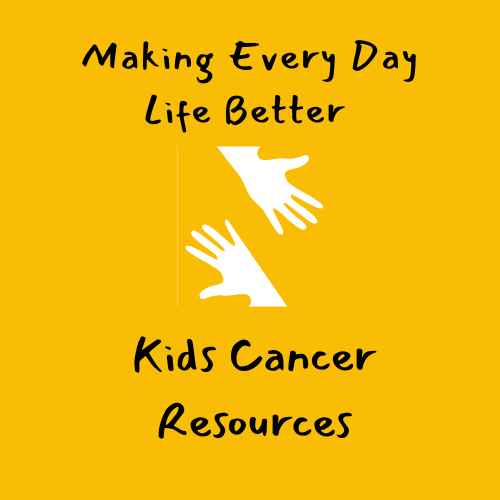Understanding the Emotional Journey of Dealing with Cancer in Children
Dealing with cancer in a child is one of the most challenging experiences a family can face. The diagnosis often sparks a whirlwind of emotions—fear, confusion, and hope all at once. Recognizing these feelings as part of the process helps families prepare for the road ahead. It’s important to acknowledge that each child and family experiences this journey differently, yet common threads of resilience and determination often emerge.
Families may find themselves overwhelmed by medical jargon and treatment options. Addressing these concerns openly and seeking support from healthcare providers can provide clarity and reassurance. Connecting with other families through support groups can also lessen the isolation many feel while coping with childhood cancer.
Emotional Impact on Children and Families
Children diagnosed with cancer may face emotional challenges such as anxiety about treatments and fear of the unknown. Families, too, deal with stress, balancing caregiving with daily responsibilities. Open communication within the family is crucial for processing emotions and fostering a supportive environment.
Benefits of Support Networks
Support networks provide vital encouragement and practical advice. These groups often share coping strategies, recommend resources, and offer emotional comfort. Organizations like the American Childhood Cancer Organization offer online communities and local meetings for parents and children alike.
Strategies for Building Strength During the Cancer Journey
Building strength to face the challenges of childhood cancer involves both emotional resilience and practical coping skills. Embracing hope and focusing on positive steps can significantly improve the experience for patients and their families.
Practical Approaches to Dealing with Cancer
– Maintain a structured daily routine to provide a sense of normalcy for the child.
– Encourage age-appropriate participation in treatment decisions to empower the child.
– Use distraction techniques such as art, music, or play therapy to reduce anxiety.
– Seek professional psychological support if feelings of depression or anxiety persist.
Emotional Self-Care for Caregivers
Caregivers often neglect their own well-being while focusing on the child. Prioritizing self-care through regular breaks, healthy nutrition, and connecting with close friends can rebuild strength. Mindfulness meditation and breathing exercises have proven helpful in managing stress.
Medical Treatment and Advances: How Hope Is Being Renewed
Recent advances in pediatric oncology have improved survival rates and quality of life for children with cancer. Understanding the available treatments can empower families to make informed decisions and maintain hope throughout the process.
Common Treatments Explained
– Chemotherapy: Uses drugs to target fast-growing cancer cells.
– Radiation Therapy: Employs high-energy rays to destroy cancer cells.
– Surgery: Removes tumors when possible.
– Immunotherapy: Boosts the body’s immune system to fight cancer.
– Stem Cell Transplants: Replaces damaged bone marrow in some cancers.
Each treatment plan is personalized, considering the child’s specific cancer type, age, and overall health. Discussing potential side effects beforehand helps families prepare and find ways to mitigate discomfort.
Emerging Research and Clinical Trials
Clinical trials are essential to exploring new therapies, offering access to cutting-edge treatments not yet widely available. Families interested in clinical trials should consult their oncology team to understand eligibility and potential benefits.
For more detailed information, visit the Childhood Cancer International website at https://www.childhoodcancerinternational.org/.
Maintaining Hope: Stories of Courage and Inspiration
Hope is a powerful ally when dealing with cancer. Stories of children and families who have faced similar battles often inspire strength and perseverance.
Real-Life Examples
Take the story of Maya, a young girl diagnosed at age 5. Through a combination of chemotherapy and family support, she is now in remission and advocates for childhood cancer awareness. These narratives highlight the importance of community and relentless spirit.
How to Foster Hope Every Day
– Celebrate small victories such as treatment milestones or remission markers.
– Create memory books or journals to document the journey and growth.
– Engage in activities the child enjoys to nurture joy amid challenges.
– Practice gratitude as a family to shift focus toward positive moments.
Practical Resources for Families Dealing with Cancer
Navigating the complexities of childhood cancer can be easier with the right tools and resources. Access to reliable information and support is critical for families coping with childhood cancer.
Helpful Organizations and Websites
– American Cancer Society (https://www.cancer.org)
– St. Jude Children’s Research Hospital (https://www.stjude.org)
– National Children’s Cancer Society (https://thenccs.org)
– Cancer.Net for Kids and Teens (https://www.cancer.net/kids-teens)
These organizations offer educational materials, financial aid programs, and emotional support services tailored to children and their families.
Financial and Legal Considerations
Treatment can be financially burdensome. Families should explore insurance options, government assistance, and nonprofit grants designed to ease this strain. Consulting a social worker at the treatment center can connect families with specific resources and advocate for their needs.
Encouraging Resilience: How Families Can Thrive While Dealing with Cancer
While dealing with cancer is undeniably difficult, many families find strength in their ability to adapt and thrive. Fostering resilience creates a more hopeful environment and better emotional outcomes for everyone involved.
Building Resilience Through Communication
Open and honest conversation reduces fear and confusion. Encouraging children to express their feelings helps them process the experience and feel supported. Family counseling can further enhance communication skills.
Focusing on What Can Be Controlled
Families benefit from focusing on actions within their control, such as treatment adherence, nutrition, and maintaining social connections. This approach reduces anxiety tied to uncertainty and reinforces a proactive mindset.
—
Facing childhood cancer demands immense courage, determination, and hope. By understanding the emotional landscape, utilizing effective coping strategies, staying informed about treatments, and engaging with supportive resources, families can find strength in their journey. Every step taken is a testament to love and resilience.
If you or a loved one is dealing with cancer, reach out for support today. Visit khmuhtadin.com to connect with compassionate professionals ready to help you find hope and strength through this difficult time. Your path to healing starts here.




